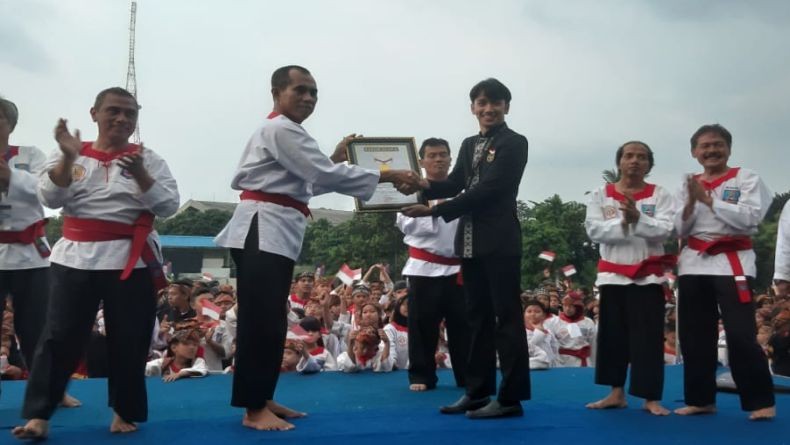
While nominally an Indonesian organisation, many of the rules and regulations outlined by IPSI have become the de facto standard for silat competitions worldwide. The resistance to sport has lessened over time, however, and sparring in particular has become less combative. IPSI has avoided the tendency of modern martial arts that gravitate towards sport.

The world's oldest nationwide silat organisation, its basis is that all pencak silat is built on a common source, and that less functional styles must give way to the technically superior. The Indonesian Pencak Silat Association (IPSI) was founded in 1948 to bring all of Indonesia's pencak silat under a single administration. Colonial era Ĭonflict with the European rulers provided an impetus for the proliferation of new styles of pencak silat, now founded on the platform of nationalism and the desire for freedom from colonisation. In Majapahit, pencak silat became the specialised property of the nobility and its advanced secrets were hidden from commoners. This was the first empire to unite all of Indonesia's major islands, and pencak silat reached its technical zenith during this period. The village he founded became the Majapahit empire. With his silat-trained warriors, Raden Wijaya then turned on the Mongols so that they fled back to China. With their help Raden Wijaya was able to defeat the Kediri forces. His son-in-law Raden Wijaya replaced Kertanegara as leader and allied himself with the arriving Mongol army. Kublai Khan retaliated by sending a punitive expedition of 1000 junks to Java, but Kertanegara had already been killed by a vassal in Kediri before the Yuan force arrived. From 1280-1289, Kublai Khan sent envoys demanding that Singhasari submit to the Khan as Jambi and Melayu had already done, but Kertanegara responded defiantly by scarring the last envoy's face.

His successor, the warrior-king Kertanegara of Singhasari conquered the Melayu Kingdom, Maluku Islands, Bali, and other neighbouring areas. This is pretty much reflected the jago (people's champion) culture of ancient Java, where a self made cunning man skillful in martial arts, could rally supports and took over the kingdom. During the 13th century, Ken Arok, a thug turned into a self made hero and ruler, took over the power from Kediri Kingdom and established the Rajasa Dynasty.


 0 kommentar(er)
0 kommentar(er)
